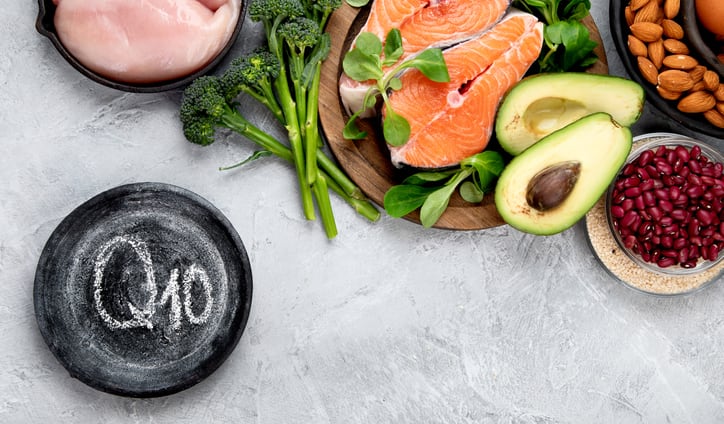The other seven functional ingredients are conjugated linoleic acid, N-acetylglucosamine, oat fiber, inulin/chicory extract, chitosan/chito-oligosaccharide, xylo-oligosaccharide, and L-carnitine tartrate, the Ministry of Food and Drug Safety (MFDS) said in its announcement.
These ingredients were selected for re-evaluation because they have been approved for use in HFFs a decade ago and new information on their safety and functionality has since sprung up.
Results of the re-evaluation will be published in December.
This has been a yearly exercise since 2017 to provide safer and effective HFFs, the MDFS said. Currently, these ingredients are approved for use as antioxidants and/or could be used to improve blood cholesterol levels.
The following is the list of their recognised functionalities.
Under the HFF system, companies can use either ‘noticed ingredients’ or ‘individually recognised ingredients’.
‘Noticed ingredients’ are a list of ingredients that are already approved for use in HFFs by the authorities.
Otherwise, companies will need to apply for the ‘certificate of individually recognised ingredient’ before using a particular ingredient in HFFs.
Except for xylo-oligosaccharide and L-carnitine tartrate which are ‘individually recognised ingredient’, all the other seven ingredients mentioned above are considered ‘noticed ingredients’.
As of 2019, the most manufactured HFFs in South Korea were red ginseng, probiotics, vitamins and minerals, EPA, and DHA.
New functionality evidence
The following is a list of new clinical evidence published in recent years on the functionality of the nine ingredients mentioned above.
Co-enzyme Q10
New evidence has shown that co-enzyme Q10 could offer neuro-related benefits.
In a trial involving 100 adults with episodic migraine, the supplementation of co-enzyme Q10 and nano-curcumin had significantly reduced the frequency, severity, and duration of migraine attacks.
There were no side effects reported.
Another trial on 60 young children and teenagers with attention deficit hyperactivity disorder (ADHD) showed that co-enzyme Q10 could serve as an adjuvant treatment by improving symptoms, especially hyperactivity.
Squalene
A clinical trial conducted on COVID-19 patients in Iran showed that squalene microemulsion extracted from pumpkin seed oil could alleviate symptoms in patients.
For instance, there was a significant improvement in the symptoms of ICU-admitted patients, where fever and cough were reduced.
“In addition, comparing the chest CT scan on the first and final days of treatment exhibits significant improvement in those patients in the SQ (squalene) treatment group.
“They did not require oxygen therapy. The antioxidant, anti‐inflammatory, and immunomodulatory effects of SQ may account for these observations,” the researchers said.
Conjugated linoleic acid
A systematic review with meta-analysis showed that conjugated linoleic acid supplementation had led to statistically significant weight differences, alongside ingredients such as chitosan and glucomannan.
Inulin
Some of the recent clinical trials have focused on the impacts that inulin has on appetite control and insulin sensitivity.
In a randomised and placebo-controlled crossover trial involving type II diabetes patients, inulin did not affect ghrelin – the gut hormone which stimulates food intake, or the ratings of hunger, satiety, fullness or prospective food consumption as compared to the placebo group.
Energy intake also did not differ between the treatments.
A pilot six-week RCT also found that inulin supplementation does not improve peripheral insulin sensitivity in adults at risk of type II diabetes.
However, there were changes in the gut microbiome, where Bifidobacteria 16s had increased with inulin supplementation.
Chitosan
A meta-analysis found that chitosan supplementation could improve glucose level of diabetic, obese/overweight individuals.
This will be effective when chitosan is supplemented at 1.6 grams to three grams per day for at least 13 weeks.
Xylo-oligosaccharide
There are only a few studies conducted on xylo-oligosaccharide.
A RCT finding published in 2014 found that when it was supplemented as a prebiotic for 21 days, it had increased mean bowel movements per day.
However, it did not alter the symptoms of bloating, abdominal pain or flatulence or the incidence of any reported adverse events compared with maltodextrin supplementation.
L-carnitine tartrate
L-carnitine tartrate supplementation for over 35 days was found to be beneficial for improving recovery and reducing fatigue post-exercise, according to a RCT.
Eighty participants were randomised to the L-carnitine tartrate or placebo group. The participants also completed a maintenance exercise training program that culminated in a high-volume exercise challenge.
Compared to placebo, L-carnitine tartrate supplementation was able to improve perceived recovery and soreness and lower serum creatine kinase (p = 0.016).





